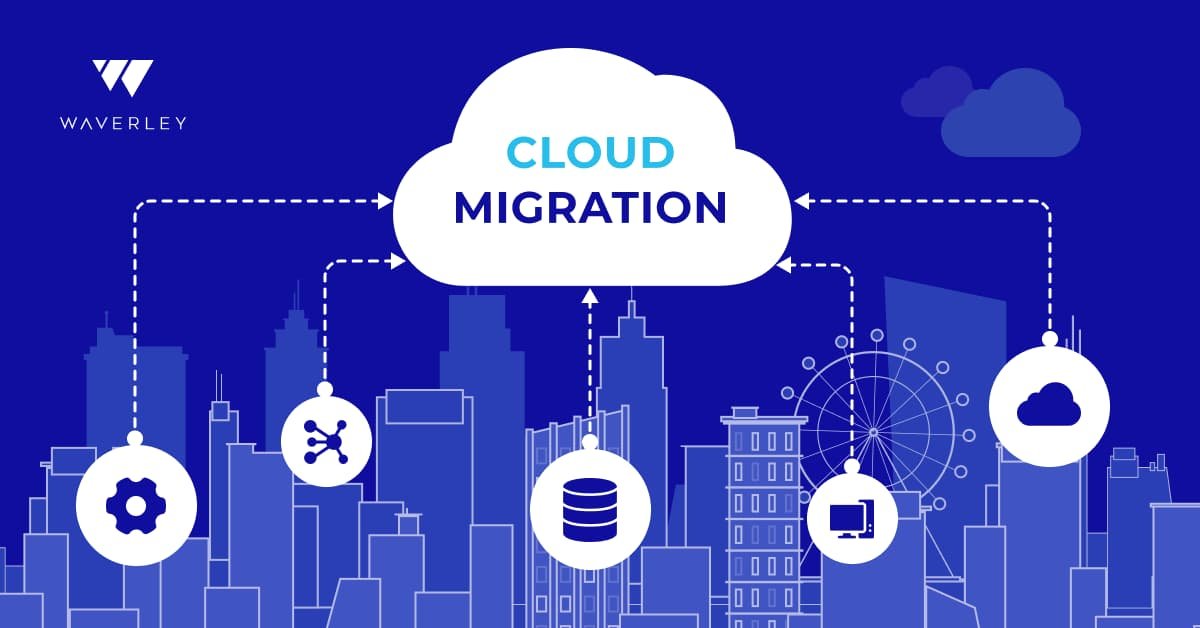In today’s hyper-connected, data-driven world, cloud migration is no longer just a technical upgrade — it’s a strategic move that directly impacts your company’s efficiency, agility, and profitability.
Whether you’re a startup scaling rapidly or an enterprise modernizing legacy systems, migrating to the cloud can streamline operations, reduce costs, and boost performance across every department.
Let’s explore how cloud migration improves business efficiency — and why now is the time to make the move.
☁️ What Is Cloud Migration?
Cloud migration is the process of moving digital assets — including data, applications, IT processes, and infrastructure — from on-premise servers to a cloud computing environment (such as AWS, Azure, or Google Cloud).
It allows businesses to scale resources on demand, eliminate hardware dependency, and optimize operational workflows.
🚀 7 Ways Cloud Migration Boosts Business Efficiency
1. 🔄 On-Demand Scalability
With cloud infrastructure, you can scale resources up or down instantly — no more overpaying for unused servers or scrambling during traffic spikes.
Result:
- Faster response to market demands
- Cost-effective resource allocation
- Seamless handling of seasonal workloads
2. ⏱️ Reduced Downtime & Faster Deployment
Cloud platforms offer high availability and built-in redundancy, ensuring your apps and websites run with minimal downtime. Plus, new environments can be deployed in minutes — not days.
Result:
- Faster go-to-market
- Higher service availability
- Improved customer experience
3. 💰 Lower Operational Costs
By switching from capital expenditure (CapEx) to operational expenditure (OpEx), businesses eliminate the need for costly hardware, physical storage, and in-house maintenance.
Result:
- Pay-as-you-go pricing
- Reduced IT overhead
- Predictable budgeting and spending
4. 🔐 Enhanced Security and Compliance
Leading cloud providers offer enterprise-grade security, including encryption, intrusion detection, and automated backups — often stronger than on-prem solutions.
Result:
- Better data protection
- Easier regulatory compliance (GDPR, HIPAA, PCI-DSS)
- Real-time security monitoring
5. 🧠 Improved Collaboration and Remote Work
Cloud-based tools enable teams to access files, apps, and dashboards securely from anywhere — powering hybrid and remote work models.
Result:
- Faster decision-making
- Real-time file sharing and collaboration
- Streamlined workflows across teams and locations
6. 📊 Data-Driven Insights and Analytics
Cloud migration allows businesses to leverage advanced tools for big data processing, AI, and machine learning — turning raw data into actionable insights.
Result:
- Smarter business decisions
- Personalized customer experiences
- Predictive analytics and automation
7. 🛠️ Automatic Updates and Maintenance
Cloud services are maintained by the provider, meaning you benefit from automatic updates, patching, and performance optimizations without manual effort.
Result:
- Always up-to-date software
- Zero downtime maintenance
- Reduced workload on in-house IT teams
🧩 Real-World Use Case
“A logistics company migrated its legacy ERP system to Azure. Result? 30% reduction in IT costs, 40% improvement in system performance, and real-time inventory tracking across global warehouses.”
— C5K IT Client Case Study
🏁 Final Thoughts
Migrating to the cloud isn’t just a trend — it’s a competitive advantage. It improves efficiency, enhances performance, reduces risk, and empowers businesses to innovate faster.
At C5K IT, we help businesses plan, execute, and optimize cloud migrations with minimal disruption and maximum impact.
👉 Contact us now for a free cloud migration consultation — and take your business to the next level.







Leave a Reply